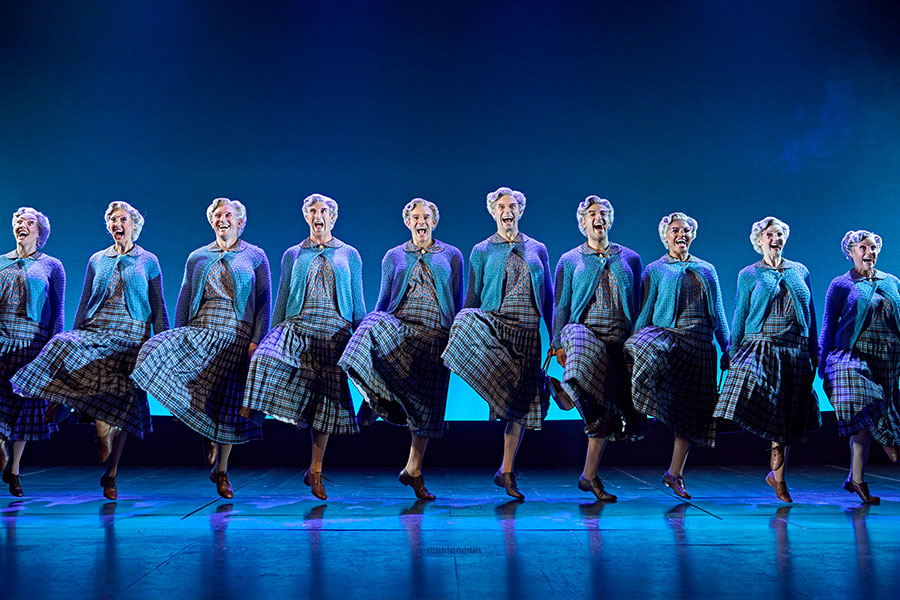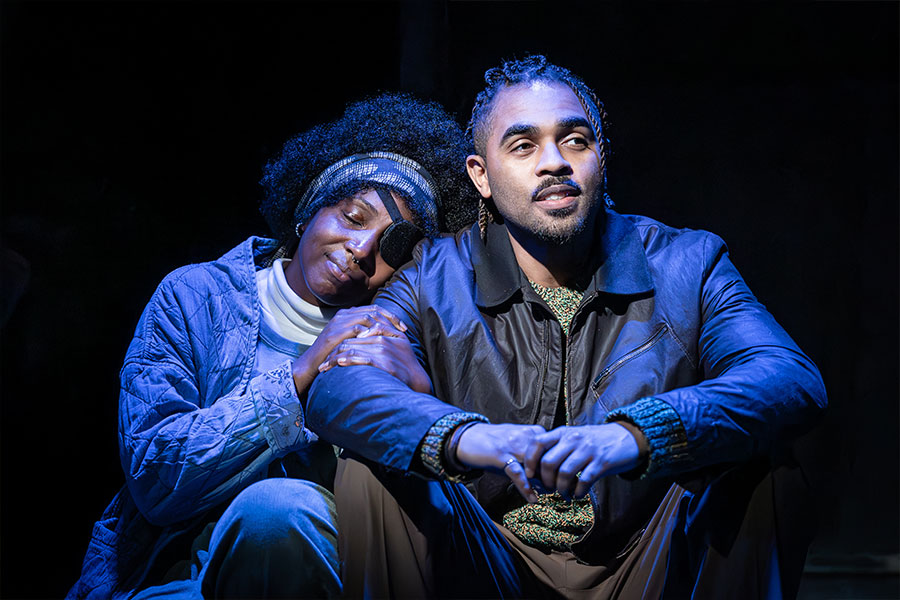Orestes: Re-Examined
A few months ago, a daring reinterpretation of Seneca’s revenge tragedy Thyestes appeared at the Arcola in a traverse staging. Now, south of the river, comes a traverse staging of the third play in Aeschylus’ revenge trilogy, The Oresteia. Both plays, though in different traditions, deal with the cycle of violence and murder that befalls the House of Atreus.
Orestes has murdered his mother, Clytemnestra, in revenge for her butchering of his father, Agamemnon, when he returned victorious from the Trojan War. Orestes is now pursued by the Furies, which symbolise his own guilt at his crime. Under the direction of Emma Gersch, Full Tilt Theatre Company has “re-examined” the play and transformed the Furies into a mob of (mostly female) rebels in torn and grubby street gear.
Orestes is a mop-headed young dude who, as we enter the auditorium, is chained like a fly caught in a metallic web. The rebels want him dead, but his uncle Menelaus pleads his cause. Athena is summoned to arbitrate and the audience, representing the judges, is invited to plop a black ball (for acquittal) or a red ball (for death) into a plastic tube. This equates to the throwing of pebbles into an urn to decide the verdict.
The action is contained within a framework that also casts the audience as delegates at a peace conference in Argos. We all wear delegate badges and the play begins in the bar, where we are welcomed by Menelaus’ deputy (Filip Krenus) who is then kidnapped by the rebels and we are led into the auditorium to hear their story.
This is all quite perky and fun, and very “fringe”, but sits oddly with the horror of what ensues. The stated intention is to “re-frame the story to the here and now” but the result, despite some very committed performances, can’t escape the earnestness of a student drama department (Full Tilt is based at Bath Spa University).
The production appears to side heavily with the rebels, but their case is undermined by their assertion that “A murderer must not be allowed to rule the state”. This applies to their beloved Clytemnestra as well as Orestes. The same basic points are stated repeatedly, rather than argued persuasively, and the play fails to hit the high notes of tragedy with sufficient power. Adrian Francis as Menelaus, with his military cap at too jaunty an angle, lacks authority, and Matthew Howard as Orestes seems more of a high school assassin than Greek hero.
– Giles Cole










